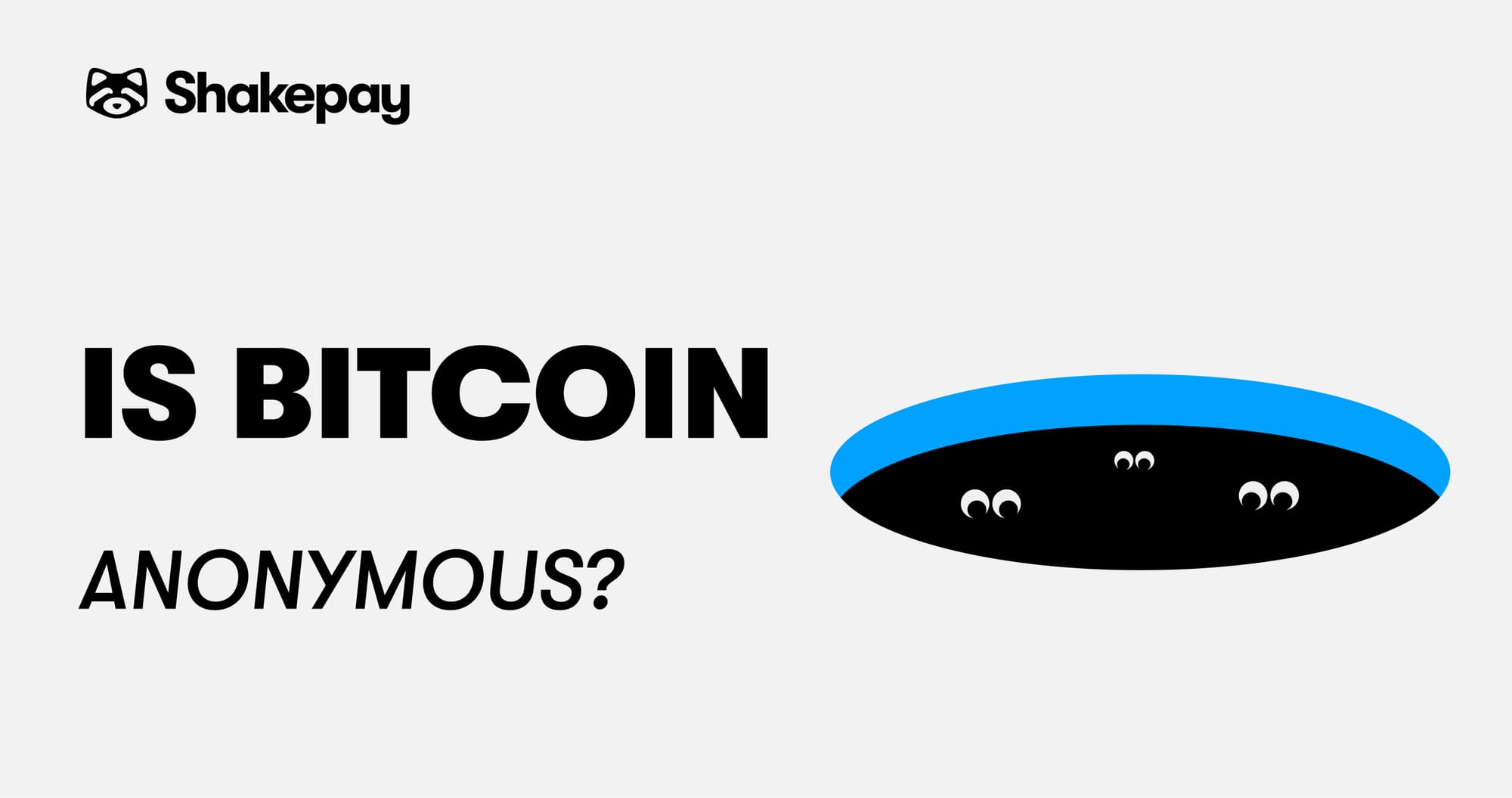Is Bitcoin anonymous?
Bitcoin has a reputation in popular culture for being an anonymous digital currency. This is not actually true. Bitcoin is at best pseudonymous. We explore in this post.

Bitcoin has a reputation in popular culture for being an anonymous digital currency. This is not actually true. Bitcoin is at best pseudonymous.
BuyBitcoinWorldwide explains what this means best:
Sending and receiving bitcoins is like writing under a pseudonym. If an author’s pseudonym is ever linked to their identity, everything they ever wrote under that pseudonym will now be linked to them. In Bitcoin, your pseudonym is the address to which you receive Bitcoin. Every transaction involving that address is stored forever in the blockchain. If your address is ever linked to your identity, every transaction will be linked to you.
It's important to remember that every Bitcoin transaction is public, traceable, permanently stored in a public ledger called the Bitcoin blockchain. This makes Bitcoin one of the most transparent forms of money ever invented.
Your identity can be linked to a Bitcoin transaction in many ways:
- You might make a purchase at an online store with Bitcoin, and provide your real name and address for shipping.
- Bitcoin platforms are often required to follow "Know Your Customer" (KYC) legislation, tying any bitcoin you receive directly to your identity.
- Your IP address can give away your identity when you broadcasting a Bitcoin transaction to a node, or look up a transaction on a public block explorer like Blockchain.info
- Any number of other ways.
Creating new Bitcoin transaction addresses for any leftover funds after a transaction, as recommended by Satoshi Nakamoto in Bitcoin's original white paper, doesn't necessarily help much with privacy either.
When sending larger Bitcoin transaction your Bitcoin wallet will often use a number of Bitcoin addresses as inputs for the larger transaction. Someone who is analyzing the blockchain can tie ownership of one of these addresses to identify the rest.
There are companies like Chainalysis whose entire business is to de-anonymize Bitcoin transactions by analyzing the blockchain and tying transactions with known identities. This allows police and regulators to investigate money laundering, fraud, and compliance violations.
While Bitcoin may never be completely anonymous like some other digital currencies promise to be (see Monero and Zcash), there are a number of efforts being put in to add anonymity and privacy features to Bitcoin directly. See the article "Bitcoin as a Privacycoin" for more information about these efforts.
In sum, as it stands, Bitcoin is not private. It is at best pseudonymous, and it's rather easy to be de-anonymized, if an organization with sufficient resources cares to look.

